Mobile phone application WhatsApp said that it can’t build a solution to trace the origin of a message on its platform rejecting India’s demand for such a software to trace the source of fake messages which contain anti-social elements leading to criminal activities like mob lynching.
The company is expected to remain on its stand that it is impossible for it to trace the origin of the messages due to end to end encryption. Building a traceability would undermine end-to-end encryption and the private feature of the application paving a way for the potential for misuse of the application.
WhatsApp also stated that it won’t weaken the privacy protection feature it provides to its users around the globe.
The company has also added that the users rely on WhatsApp for all types of communication including sensitive conversations. It said that it aims to educate its users on misinformation and help them to keep themselves as safe.
WhatsApp drew attention after its platform used in spreading fake news containing baseless information which resulted in serious crimes including mob-lynching in various parts of the country for the past several months.
Earlier this week, after a meeting with WhatsApp Chief Executive Officer (CEO), Chris Daniel, India’s Information Technology Minister Ravi Shankar Prasad said, the government has asked WhatsApp to build a local corporate entity and build a software to trace the source of fake messages circulated on its platform and appoint a grievance officer.
WhatsApp could face abetment charges if it fails to build a mechanism to find the origin of fake messages and stop the circulation of fake news on its platform, the minister informed after the meeting with WhatsApp CEO.
The Indian government has served two notices to WhatsApp seeking information on the measures it has taken to stop the menace. In reply, WhatsApp had clarified that it is forming a local team, consisting an Indian head. To stop the menace, WhatsApp has also introduced new characteristics to let its users identify forwarded messages. The company has also limited the number of forwards that can be done at a time by a user.
The Indian government is also keeping a vigil eye on the content being transferred through social media channels, such as Facebook, Twitter, and WhatsApp as they are being used as tools to spread fake news. WhatsApp has over 200 million users in India against a total global users number of over 1.5 billion.

















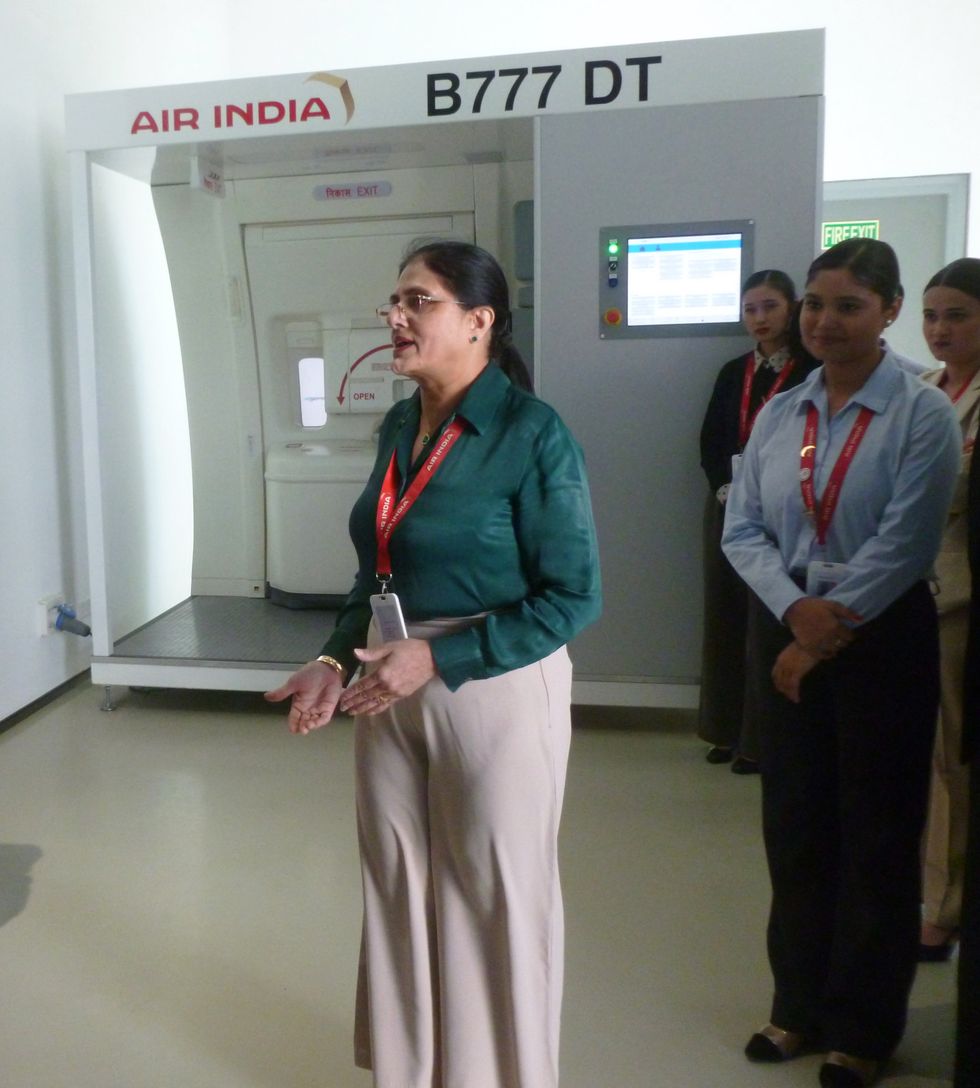 A briefing session on opening cabin doors in the event of an emergency
A briefing session on opening cabin doors in the event of an emergency Shradha Dabral checks an aircraft engine
Shradha Dabral checks an aircraft engine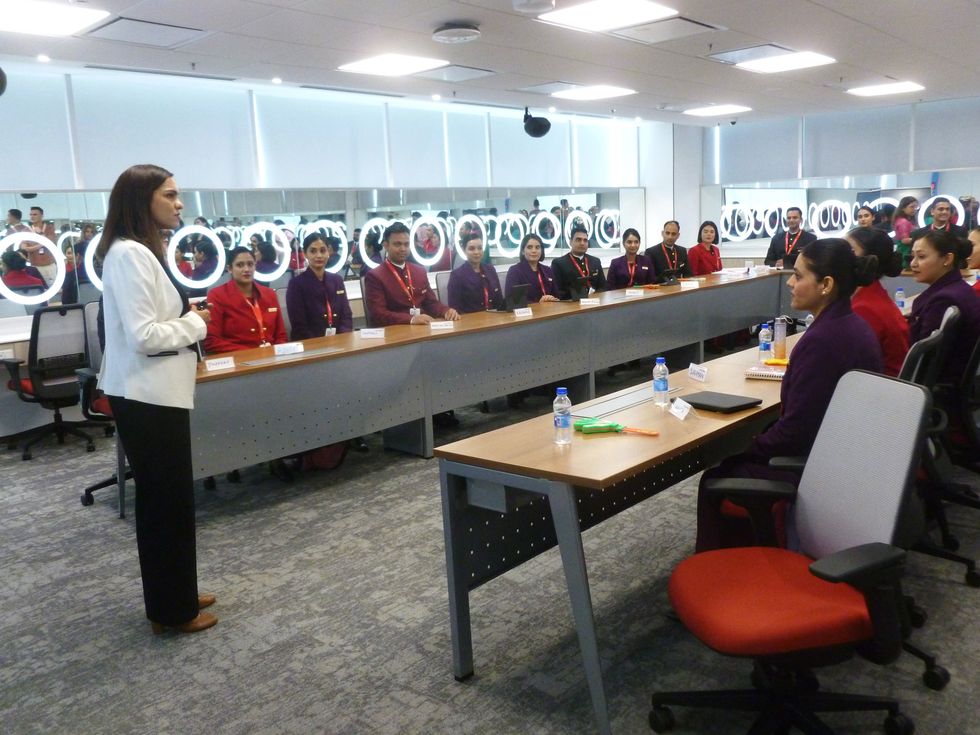 A session on cosmetics and grooming
A session on cosmetics and grooming Air India employees are trained in handle pilot incapacitation emergencies
Air India employees are trained in handle pilot incapacitation emergencies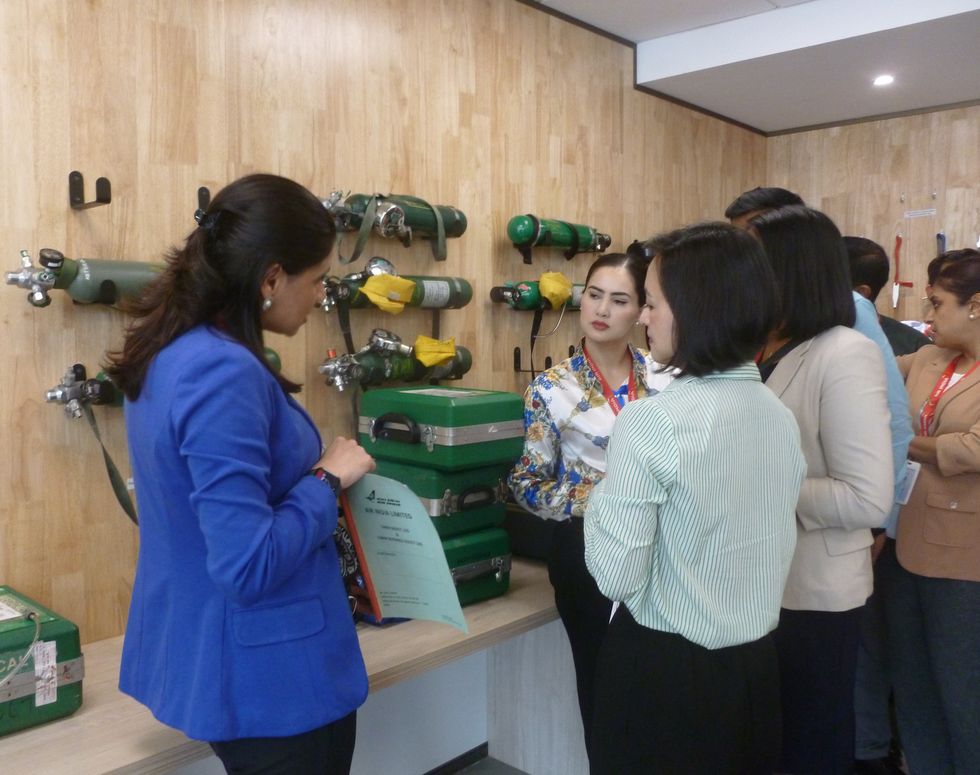 Women are taught how to bring fires under control
Women are taught how to bring fires under control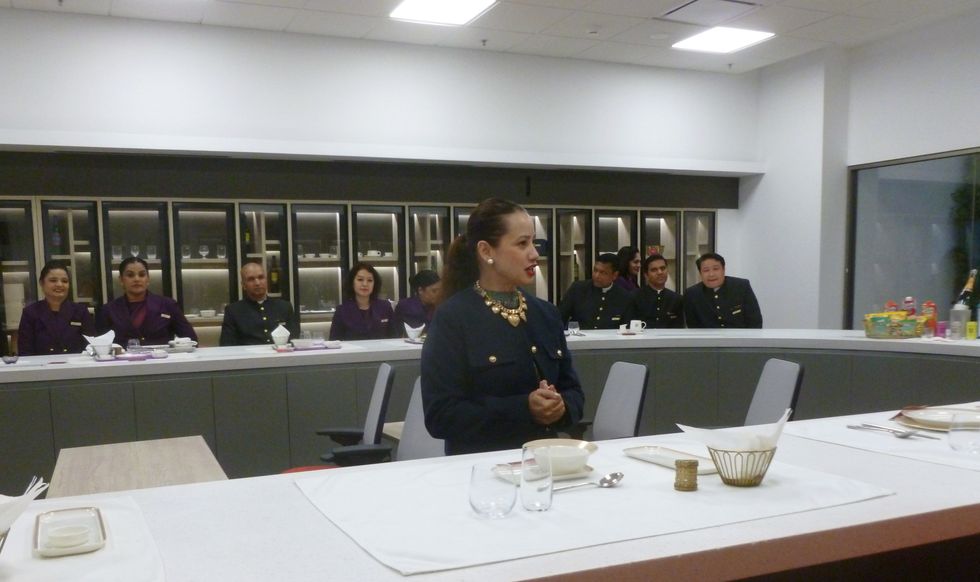 Crew members attend a session on fine dining etiquette
Crew members attend a session on fine dining etiquette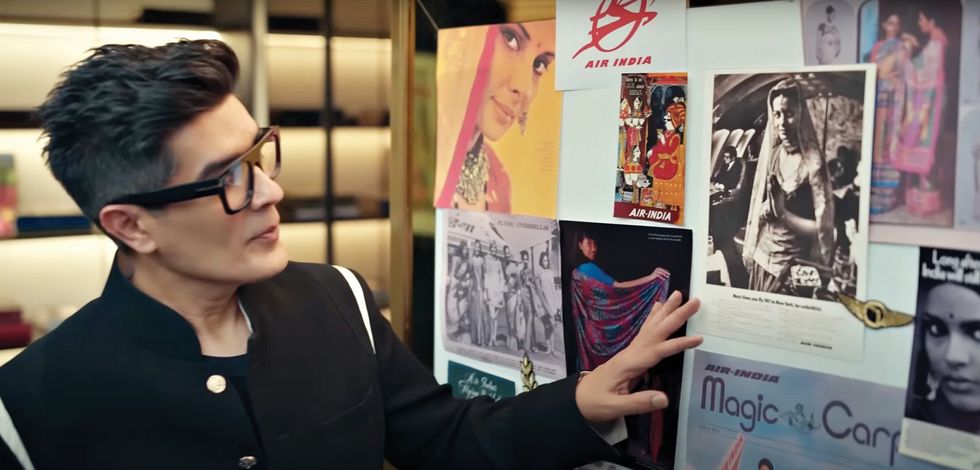 Designer Manish Malhotra
Designer Manish Malhotra
